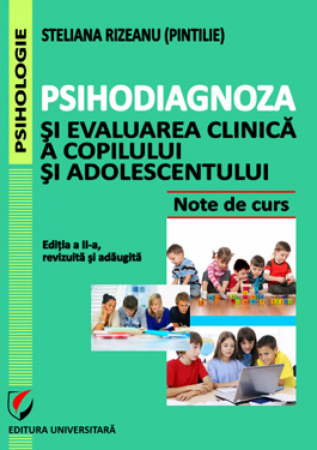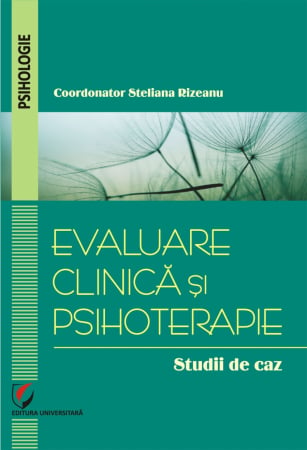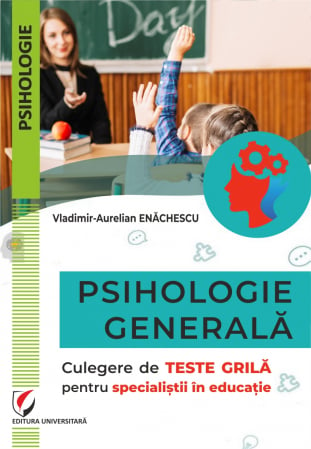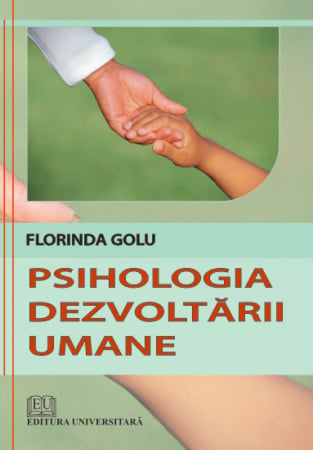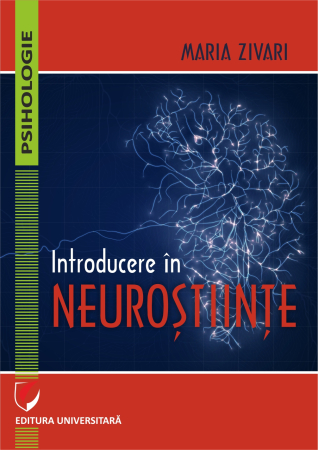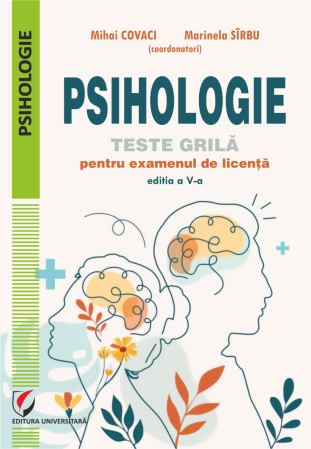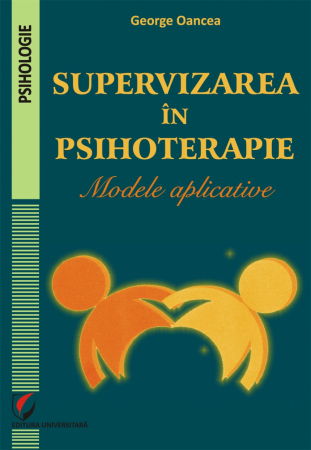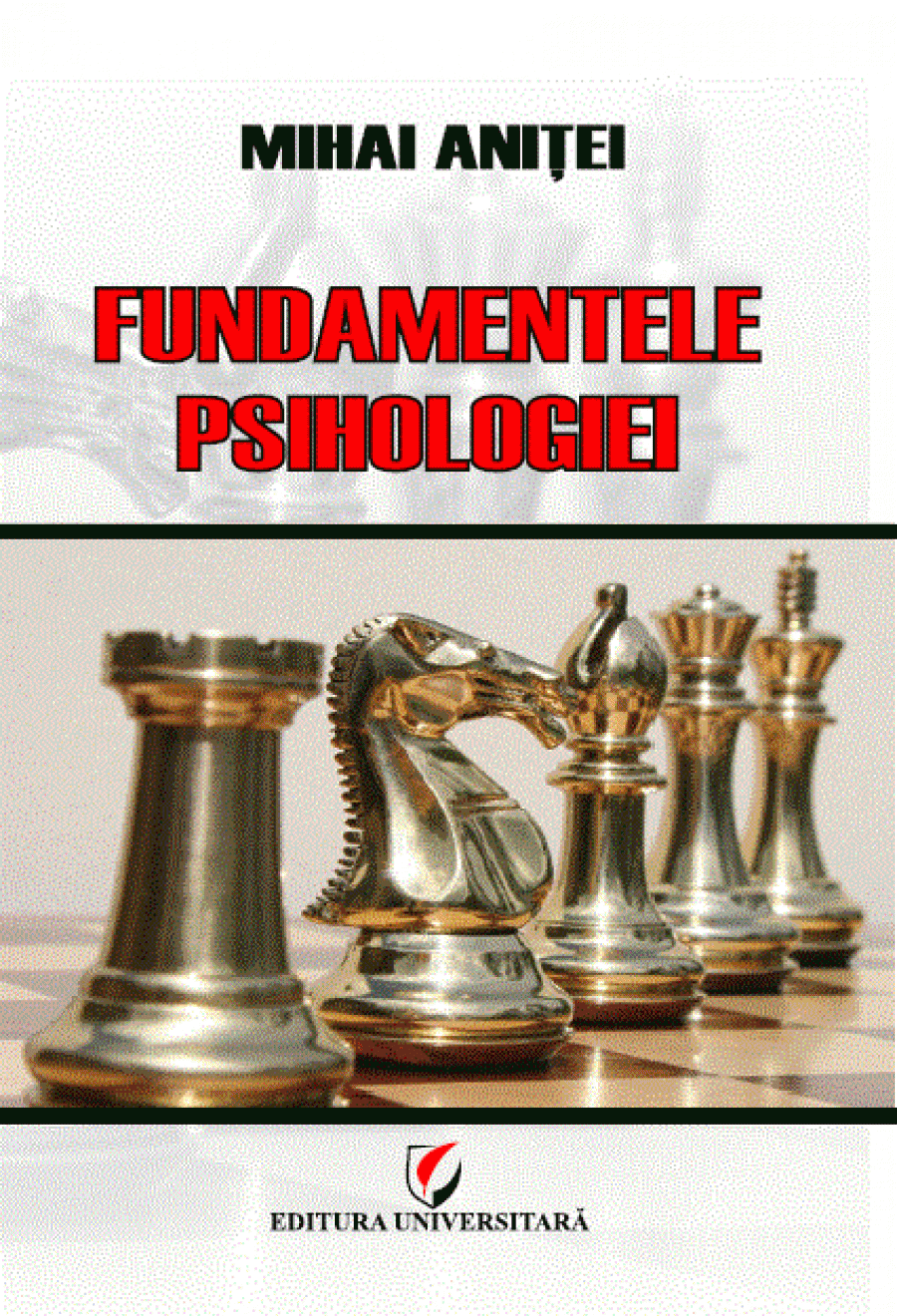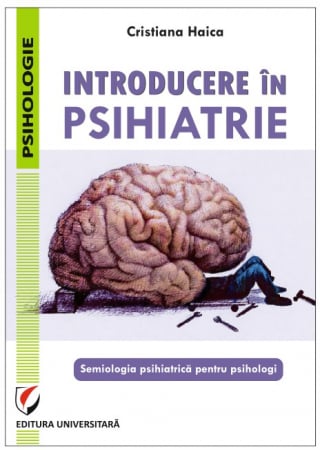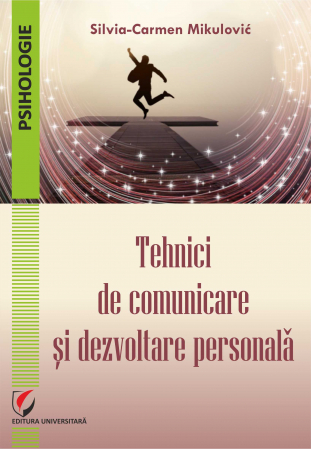ISBN: 978-606-591-472-8
DOI: 10.5682/9786065914728
Publisher year: 2012
Edition: I
Pages: 329
Publisher: Editura Universitară
Author: Simona Glăveanu
- Description
- Download (1)
- More details
- Content
- Authors
- Reviews (0)
The volume "Parental competence. Model conceptualization and diagnosis" contains a theoretical scientific theories are analyzed explains the relationship between parents and children and some application that describes the approach of constructing and validating a tool for investigating parental competence (CPC). In addition, by correlating the results obtained from applying ACF with some psycho-social (personality, emotional intelligence, coping style, characteristics of conjugal relationship, perception of lived experience in family education model) and socio-demographic (gender, age, marital status, wealth, education level, number of copies) of the parents, an assessment is general (but not exhaustive) the current level of the Romanian population in terms of parental competence.
Book professionals provide family counseling / school evaluation methods parent-child relations - "questionnaire to investigate parental competence" and "scales of observation and evaluation" (from the perspective of teachers) of its dynamics and child behavior school - based tools which can be identified psychological profile of parents, useful in diagnosis and evaluation activities of the intervention.
* * *
Parent-child ratio is undoubtedly experience peak ("peak experience") - for any other type of networking is to be found so strongly that "entelechy" (state of completion or perfection, as Aristotle defined the essence of the soul ), implementing that act potentially vital: both child and parent learn, grow, cultivate love, hope, happiness, forgiveness, devotion and sacrifice vocation.
Parenting, today called the generic term "parenting" is obviously the oldest human vocation. Its success was ensured by phylogenetic compulsion to care for offspring - Therefore he indulged in intuition, empiricism and routine.
Today, "parenting" is the area of public policy, inciting the emergence of debate, legislative decisions and international scientific meetings. In this context, a work of synthesis and integration of information, concepts, theories and methods of operationalization is more than necessary.
The author thinks a new record parent-child relationship that is in terms of "parental competence" was conceptualized by the notion in 2008, after two years of studies and published in "Modern Psychological Research", volume coordinated by M. Milcu , W. Griebel and A. Sassu.
The concept of "parental responsibility", operationalized by the author in this book, is not only an "insight" to the empiricism, but based science with investigative and diagnostic methodology, a multifactorial view, systemic and nomotetică.
Comparing different views of a significant number of authors on educational style (structured authority-liberalism axis, love-hostility) and its effects in terms of mental development of children, the author has outlined six models parenting - authoritarian, indulgent, hiperprotector, inconsistent, regardless and aggressive - as a prerequisite for the identification of effective parent model / competent.
It is noteworthy relevance and rigor with which the author expands the investigation of parent-child relationship by presenting and analyzing in an integrative view, the theories concerning the role of family in shaping personality, social conduct and moral and cognitive development of children from prospect of success or failure of educational model in academic and social integration of the child.
The considerations discussed so far have allowed the author to identify the complexity of parental competence and reflect the development of a factorial model containing five factors (and knowledge of the child, emotional support, discipline, time management and crisis) and explanatory reporting in three models- interpretative (personal, situational and interactional-integrative).
It is necessary to emphasize the manner in which she answered the challenge launched by the situation in Romania, namely the lack of valid instruments to highlight the parent-child relations - although there are numerous such international instruments - meaning the design and validation of a questionnaire investigation parental competence (CPC).
Contributions are more consistent with how we walk the second half of the book are grounded methodological psychometric characteristics of instruments designed. The author deepens the analysis of parental competence in terms of its variations determined by the particular socio-demographic, personality traits and psychosocial characteristics such as emotional intelligence, coping style, marital and model educational environment in the family lived.
This book is a success, a reference construct in this field, regarding the emergence of psychology and life impact of the current dynamic.
By way of organizing content, the book is a scientific and methodological, with clear notes of originality. From theoretical perspective, the author provides a systematic and reductionist paradigm shift from the most dynamic and interactionist-systemic study of parent-child relationship (the conceptualization and operationalization of parental competence in relation to Young children). Also, from a practical perspective, made an example of a research approach to parenting competence (by building an evaluation questionnaire and observation and evaluation of grid dynamics and behavior of its children to school, entering the instrument portfolio in the area " parenting "time).
Managing an extensive research on the functionality of parental competence, remarkable results have been the author and are disseminated at national and international scientific events. In this respect mention his participation in the 2011 edition of the Conference "Evidence-Based Parent Education Programs and Best Practices to Promote Positive Parenting", conducted by "European Society for Developmental Psychology", the workshop "The art of communicating effectively with the child" and publication of "Validating a Training Program for Parental Competence" in "Problems of Psychology in the 21st Century" published in 2012 under socialism Scientia Lithuania.
We have in this book a vanguard approach with flexible thinking, divergent on the content, forms, resources and development of parental competence. Like everything designed by man, and the book reflects a character Glăveanu Simone, after working together for several years, we have the satisfaction to see that this "expression" is beneficial to society.
Prof. Dr. Grigore Nicola
Romanian Academy
Institute of Philosophy and Psychology "C.Rădulescu-Motru"
Department of Psychology
-
Competenţa parentală. Modele de conceptualizare şi diagnoză
Download
Studiul şi cercetarea relaţiei părinţi-copii constituie un subiect de interes pentru specialişti din domenii diverse – psihologie, pedagogie, sociologie etc., ceea ce a făcut ca această tematică să cunoască o paletă largă de abordări: cele centrate pe latura teoretico-descriptivă au condus la tipologii comportamentale ale copiilor şi părinţilor în cadre problematice relevante; alte lucrări au elaborat şi validat îndrumări pentru coping-ul eficient – cu sau fără o fundamentare personologică (B. Spock, 2000; Dorothy Law Nolte şi Rachel Harris, 2001; Carmen Ciofu, 2004; Irina Petrea, 2007). O altă direcţie a fost reprezentată de dezvoltarea self-managementului părinţilor în exersarea funcţiei educative (L. Schlessinger, 2004) şi a programelor individualizate pentru disfuncţii clar determinate (A. Frankland şi P. Sanders, 1999; M. Dopfner et al., 2004; F. şi Ulrike Petermann, 2006).
Deşi demersul privind studiul relaţiei părinţi-copii este complex şi aparent complet (date fiind multitudinea cercetărilor şi diversitatea perspectivelor de analiză), în literatura de specialitate întâlnim îndeosebi informaţii generale despre optimizarea acestei interacţiuni, care fac referire mai ales la copilul de vârstă preşcolară, la puber sau adolescent.
Prin urmare, ne-am propus definirea unui cadru ştiinţific pentru abordarea psihologică a relaţiilor între părinţi şi copiii de vârstă şcolară mică, lansând conceptul de competenţă parentală şi investigând condiţiile de dezvoltare a acesteia ca factor de progres în procesul adaptării şcolare şi sociale a copilului.
Structura şi dezvoltarea competenţelor a fost studiată în majoritatea domeniilor de activitate, cu raportare explicită la eficienţa muncii – în acest sens, R. Boyatzis a elaborat un model al competenţelor luând în considerare trăsături de personalitate şi comportamente observabile (R. Boyatzis, apud R. Wood şi T. Payne, 1999).
În cadrul cercetării noastre concepem o extindere a termenului respectiv în domeniul consilierii psihologice prin sintagma competenţă parentală, păstrând notele principale ale termenului generic. Competenţa parentală reprezintă un sistem de cunoştinţe, priceperi, deprinderi şi abilităţi susţinute de trăsături de personalitate specifice, ce îi permit părintelui să îndeplinească cu succes responsabilităţile parentale, să prevină şi să depăşească situaţiile de criză în favoarea dezvoltării copilului.
Termenul a fost conceptualizat de noi în anul 2008, fiind prezentat la „Conferinţa internaţională de la Sibiu” în cadrul unui studiu ce a fost publicat un an mai târziu la Editura Universitară din Bucureşti, în volumul intitulat „Cercetarea psihologică modernă: direcţii şi perspective”, coordonat de M. Milcu, W. Griebel şi Ana Raluca Sassu. Conceptul de competenţă parentală a cunoscut o largă recunoaştere în România, prin apariţia în anul 2010 a „Strategiei naţionale integrate de formare şi dezvoltare a competenţelor parentale” intitulate „Părinţi mai buni – copii mai educaţi – o viaţă mai bună” şi susţinute de Ministerul Educaţiei, Cercetării, Tineretului şi Sportului.
Studierea chestionarelor de investigare a interrelaţionării în familie disponibile la nivel naţional a relevat absenţa unui instrument valid care să abordeze relaţia dintre părinţi şi copiii aflaţi în etapa vârstei şcolare mici; la nivel internaţional au fost identificate chestionare consacrate, însă acestea nu au fost găsite şi la firmele responsabile cu distribuirea testelor psihologice etalonate pe populaţia românească. Aceste considerente au reprezentat pentru cercetarea noastră nevoi ce au declanşat, în scopul atingerii obiectivelor acesteia, demersul de construire a unui chestionar care să investigheze competenţa parentală şi să surprindă multitudinea dimensiunilor acesteia într-o viziune integrativă ce depăşeşte analizarea doar a stilului educativ şi care, prin scale şi conţinut, să aducă noutate în domeniu.
Vizând o abordare cât mai completă asupra relaţiei părinţi-copii, ne-am propus: elaborarea unui model structural al competenţei parentale întemeiat pe latura personologică, dar şi pe anumite aspecte psiho-sociale precum stilul de coping, inteligenţa emoţională, particularităţi ale relaţiei conjugale şi perceperea experienţei modelului educativ trăit în familie; relevarea relaţiei dintre competenţa parentală şi patternurile de conduită ale copiilor pentru identificarea direcţiilor de dezvoltare.
Tematica cercetării, demersul ştiinţific proiectat şi obiectivele propuse se înscriu pe linia eforturilor de a pune la dispoziţia specialiştilor din domeniul consilierii familiale/ şcolare metode de evaluare a relaţiilor părinţi-copii: „Chestionarul de investigare a competenţei parentale” şi „Grilele de observare şi evaluare” ale dinamicii acesteia şi ale comportamentului copilului la şcoală (din perspectiva cadrelor didactice) – instrumente în baza cărora vor putea fi identificate profile psihologice ale părinţilor, utile în activitatea de diagnoză şi de evaluare a intervenţiei. Totodată, cartea se adresează şi studenţilor de la facultăţile de psihologie şi ştiinţe ale educaţiei, celor ce urmează cursuri masterale în domeniile respective (oferind posibilitatea de aprofundare a cunoştinţelor prin prezentarea sistematică atât a concepţiilor ştiinţifice, cât şi a demersului practic) precum şi, nu în ultimul rând, părinţilor.
Cu toate acestea, demersul investigativ nu se încheie aici; în următorul volum – intitulat Programe de educaţie parentală – vom prezenta succint o serie de programe naţionale şi internaţionale prin prisma cărora am analizat rezultatele decurse din proiectarea, implementarea şi evaluarea/validarea unui training de dezvoltare a competenţei parentale elaborat de noi.
Conţinutul acestei cărţi şi al volumului ulterior de care am amintit mai sus se bazează pe textul lucrării noastre de doctorat Studiul competenţei parentale: o abordare structural dinamică în scopul proiectării unui program de formare-dezvoltare, iar cercetarea aferentă acesteia (derulată între anii 2006-2011) a inclus şi date rezultate din activitatea profesională în calitate de psiholog consilier şcolar.
Programul de doctorat s-a desfăşurat în perioada 2008-2011 în cadrul Institutului de Psihologie „Constantin Rădulescu-Motru” al Academiei Române, iar teza noastră, apreciată cu distincţia „MAGNA CUM LAUDE”, a fost coordonată de prof. univ. dr. Grigore Nicola, căruia îi mulţumim pentru profunda îndrumare ştiinţifică şi preţiosul sprijin moral.
De asemenea, adresăm mulţumiri şi celor care au făcut parte din comisiile de examinare pe parcursul pregătirii doctorale şi de susţinere a tezei: conf. univ. dr. Ruxandra Gherghinescu, conf. univ. dr. Ana Maria Marhan, conf. univ. dr. Cornelia Tatu, conf. univ. dr. Irina Anca Tănăsescu şi conf. univ. dr. Bogdan Danciu.
Simona Maria Glăveanu
* * *
The study of the parent-child relation has been for long a matter of interest for scholars in various social sciences (psychology, pedagogy, sociology etc). This fact has determined a diversity of scientific approaches of the above mentioned relation which can be grouped as follows: some are theoretical and descriptive and have resulted into behavioral typologies of parents and children, others have elaborated and validated guidance for coping to the inherent difficulties of the relation – with or without a personality-related foundation (B. Spock, 2000; Dorothy Law Nolte and Rachel Harris, 2001; Carmen Ciofu, 2004; Irina Petrea, 2007) and, finally, others are centered on the development of parental self management over the educational process (L. Schlessinger, 2004) and of programs that are tailored on clearly identified dysfunctions (A. Frankland and P. Sanders, 1999; M. Dopfner et al., 2004; F. and Ulrike Petermann, 2006).
Although the scientific work on the parent-child relation is very complex and seems comprehensive (due to the vast amount of studies and the diversity of analytic perspectives), most of the dedicated literature offers only general information for optimizing this relation and, furthermore, it concerns mainly the preschool period, puberty and adolescence.
As a consequence, we intended to define a scientific frame that could facilitate the psychological approach of the parents’ relation to the early-school aged children. For this purpose, we defined the concept of parental competence as a progress factor for children’s school and social adaptation and investigated the conditions that influenced its development.
The competence structure and development was studied in the majority activity fields, with an explicit relation to work efficiency; on this coordinate, R Boyatzis issued a competence model taking into consideration noticeable personality traits and behavior (R. Boyatzis, apud R. Wood şi T. Payne, 1999).
Within our research we conceive a development of the respective term in the psychological counseling field through parental competence term, keeping the main notes of the generic term. The parental competence was defined by us as a system of knowledge, skills, capabilities, abilities and habits that allow the parent to successfully fulfill the parental responsibilities and also to prevent/deal with crisis situations in a manner that contributes to the child’s development. The term was introduced and drafted by us in year 2008, being presented during the “Sibiu International Conference”; the study was published one year later in the volume “Modern psychological research: directions and perspectives”, coordinated by M. Milcu. The parental competence term knew a wide acknowledgment in Romania, by the appearance in 2010 of “Integrated national strategy of parental competences creation and development”, supported by Ministry of Education, Research Youth and Sports.
By studying the investigation surveys for family interrelationship available at national level, the absence of a valid tool to approach the relationship between parents and children of young school age was revealed; at international level established surveys were identified, however they were not available also for the companies responsible to distribution of psychological tests standardized for the Romanian population. These facts represented for our research needs and objectives that triggered the action of drafting a survey to investigate the parental competence and to capture the multitude of its dimensions in an integrated perspective that would go beyond the analysis of only the educational style and would bring novelty to the domain (through its scales and content).
In order to maximize the degree of completeness of the investigation, we intended to issue a structural model of parental competence created both on personological traits, as well as on several psycho-social aspects (such as coping style, emotional intelligence, particularities of marital relation and the perception of the educational model lived in the family) and also to reveal the relation between parental competence and children behavioral patterns (in order to identify its dimensions that need to be developed).
The research theme, the drafted scientific process and the intended objectives are within the line of efforts to put to disposition of family/school counseling field specialists, methods to assess the parents-children relationships, as well as “The parental competence questionnaire” and the “Observation and assessment grills” of its dynamic and of child behavior in school from teachers’ perspective, based on which parents psychological profiles shall be identified, useful in the intervention diagnosis and assessment activity.
Then again, this book addresses the students in psychology and educational sciences and those who attend master degree courses (as it offers the possibility of deepening their knowledge through the systematic presentation of both the scientific approaches and the practical study), and, last but not least, the parents.
Nevertheless, the scientific investigation has not been concluded yet: in our next book, which will be entitled Parental Education Programs, a series of national and international programs will be briefly described.
Those programs were used as a landmark for analyzing the results that were obtained by designing, implementing and evaluating/validating the training program for the parental competence elaborated by us.
This book and the afore-mentioned next volume are based on the content of our doctoral paper entitled The Study of Parental Competence. A Structural and Dynamic Approach for Designing a Formation and Development Program, and the research that was included in it was carried out between 2006 and 2011 and also included information from the professional activity as a school counselor and psychologist.
The doctoral course was carried out between 2008 and 2011 at the „Constantin Rădulescu-Motru” Institute of Psychology of the Romanian Academy and our doctoral paper (that was awarded the „MAGNA CUM LAUDE” degree) was coordinated by professor Grigore Nicola, Ph.D., whom we thank for the profound scientific guidance and valuable moral support.
We also thank the various scholars who took part in the examination commisions throughout the doctoral course and in the context of presenting the final dissertation: associate professor Ruxandra Gherghinescu, Ph.D., associate professor Ana Maria Marhan, Ph.D., associate professor Cornelia Tatu, Ph.D., associate professor Irina Anca Tănăsescu, Ph.D., and associate professor Bogdan Danciu, Ph.D.
Simona Maria Glăveanu
Prefaţă / 15
Cuvânt înainte / 19
PARTEA ÎNTÂI
ARIA PROBLEMATICĂ A COMPETENŢEI PARENTALE: PREMISE ŞTIINŢIFICE, MODELE DE CONCEPTUALIZARE ŞI DIAGNOZĂ
Capitolul I
MODELE PARENTALE / 27
1. Modelul părinţilor ,,autoritari” / 29
2. Modelul părinţilor ,,indulgenţi” / 35
3. Modelul părinţilor ,,protectori/hiperprotectori” / 40
4. Modelul părinţilor ,,inconsecvenţi” / 44
5. Modelul părinţilor ,,indiferenţi” / 46
6. Modelul părinţilor ,,agresivi” / 50
7. Modelul părinţilor ,,eficienţi” / 52
Capitolul II
MEDIUL FAMILIAL ÎN ASISTAREA FORMĂRII ŞI DEZVOLTĂRII COPILULUI / 59
1. Rolul familiei în formarea personalităţii / 59
1.1. Componenta afectivă / 61
1.2. Conduita morală / 64
1.3. Integrarea socială / 66
1.4. Devianţa comportamentală / 70
2. Interrelaţiile parentale şi dezvoltarea cognitivă / 75
3. Reprezentările copilului vizând mediul familial / 78
Capitolul III
DEMERSURI EXPLICATIV-INTERPRETATIVE ALE COMPETENŢEI PARENTALE / 80
1. Modelul factorial al competenţei parentale / 80
2. Conotaţii psihologice ale modelelor explicativ-interpretative / 84
2.1. Modelul personal sau modelul trăsăturilor / 84
2.1.1. Competenţa parentală – modul al competenţelor sociale (dimensiuni de personalitate) / 85
2.1.2. Inteligenţa emoţională – resursă a competenţelor parentale / 94
2.1.3. Alţi factori psihologici individuali ai părinţilor / 103
2.1.3.1. Cogniţia părinţilor / 103
2.1.3.2. Rezistenţa la stres / 105
2.1.3.3. Tulburările emoţionale / 105
2.1.3.4. Tulburările de personalitate şi psihozele / 107
2.2. Modelul situaţional sau contingent / 108
2.2.1. Particularităţi socio-culturale şi socio-economice vectori mediatori în competenţa parentală / 109
2.2.2. Amprenta carierei profesionale asupra competenţei parentale / 113
2.2.3. Bona–factor modelator în competenţa parentală / 115
2.2.4. Competenţă parentală şi tip de familie / 116
2.2.4.1. Familia tradiţională / modernă / 116
2.2.4.2. Familia parentală / 120
2.2.4.3. Familia monoparentală / 124
2.2.4.4. Familia extinsă / 127
2.2.4.5. Familia de provenienţă / 129
2.3. Modelul interacţionist-integrativ / 130
2.3.1. Relaţia dintre trăsăturile copilului şi ale părinţilor / 131
2.3.2. Tipologia copilului dificil / 136
2.3.3. Relaţiile dintre fraţi / 139
Capitolul IV
MIJLOACE DE DIAGNOZĂ ALE COMPETENŢEI PARENTALE / 142
1. Instrumente de investigare a interrelaţionării în familie-conotaţii pentru evaluarea competenţei parentale / 142
2. Strategia naţională integrată de formare şi dezvoltare a compe tenţelor parentale / 144
3. Abordări internaţionale contemporane în studiul parentingului/ competenţei parentale / 148
PARTEA A DOUA
CERCETARE
Capitolul V
METODOLOGIA CERCETĂRII / 157
1. Obiective / 157
2. Ipoteze / 158
3. Subiecţi / 158
4. Metode / 159
4.1. Instrumente folosite pentru examinarea părinţilor / 159
4.1.1. Inventarul CC.P. (S.Glăveanu) / 159
4.1.2. Grila de evaluare a percepţiei cadrelor didatice asupra dinamicii competenţei parentale (S. Glăveanu) / 165
4.1.3. Chestionarul 16 P.F (R.B.Cattell) / 166
4.1.4. Chestionarul G.Z. (J.Guilford-W.Zimmerman) / 174
4.1.5. Testul EQ (T.Carabin) / 177
4.1.6. Inventarul EMBU (C. Perris et al.) / 179
4.1.7. Chestionarul COPE (C.S.Carver et al.) / 181
4.1.8. Chestionarul M.R.Q. (W.E.Snell et al.) / 185
4.2. Instrumente folosite pentru examinarea copiilor / 190
4.2.1. Chestionarul W-M (Woodworth –Mathews) / 190
4.2.2. Grila de observare şi evaluare a comportamentului copilului la şcoală şi de investigare a evenimentelor familiale din perspectiva cadrelor didactice (S.Glăveanu) / 194
Capitolul VI
PREZENTAREA, ANALIZA ŞI INTERPRETAREA DATELOR / 196
1. Analiza preliminară a datelor / 196
2. Modelul factorial al competenţei parentale / 198
3. Variaţia competenţei parentale în funcţie de particularităţi socio-demografice) / 208
4. Un set de trăsături de personalitate ca predictori ai competenţei parentale / 229
5. O serie de variabile psiho-sociale ale părinţilor în corelaţie cu dimensiunile competenţei parentale / 248
5.1. Inteligenţa emoţională / 248
5.2. Modul de percepere a experienţei modelului educativ trăit în familia de origine / 251
5.3. Stilul de coping / 255
5.4. Particularităţile relaţei de cuplu / 257
6. Adaptarea şcolară şi socială a copiilor în alternative ce corelează cu atributele competenţei parentale / 261
Capitolul VII
CONCLUZII / 268
BIBLIOGRAFIE / 279
ANEXE / 299
Anexa 1 – Chestionar pentru investigarea atitudinilor parentale (Simona Maria Glăveanu) / 299
Anexa 2 – Grilă de identificare a copiilor cu dificultăţi şcolare şi familiale, destinată cadrelor didactice (Simona Maria Glăveanu) / 303
Anexa 3 – Inventarul C.C.P. (Simona Maria Glăveanu) / 304
Anexa 4 – Grila de evaluare a percepţiei cadrelor didactice asupra dinamicii competenţei parentale (Simona Maria Glăveanu) / 313
Anexa 5 – Grilă de observare şi evaluare a comportamentului copilului la şcoală şi de investigare a evenimentelor familiale (din perspectiva cadrelor didactice) (Simona Maria Glăveanu) / 315
REZUMAT (în limba engleză) / 317
Simona Maria Glăveanu is assistant professor in the Department of Psychology Ph.D. Ecological University Bucharest. Teaching activity includes psychological counseling in schools, group dynamics, etc.. He participated in numerous scientific conferences, published over 25 studies, research in books and national and international journals.
Among these include selective:
Scientia socialism, Lithuania - Validating the training schedule for Parental Competence in,, Problems of Psychology in the 21st Century ", Vol 2, (2012).
The Romanian Academy, Bucharest has published:
- Stress resistance resource of parenting competence, Psychology Review, Volume 58 No.1 (2012),
- Parental models revealed the familiar picture - approach nomotetics in, Journal of Psychology, Vol 57 No. 1 (2011), Ethno-cultural particularities in adult education, philosophical-psychological research, No.2, (2010).
At Editura Universitara, Bucharest has also published:
- Family and psycho-behavioral development of children, Health psychology, Avram, E. (Eds.) (2010);
- Diagnosis of verbal communication as a vehicle stability / instability of conjugal informal, in Modern research in psychology. Individual, group, organization: applied studies, Milcu, M. (Eds.) (2010);
- A multifactorial model of parental competence, Modern psychological research: Directions and perspectives vs. quantitative research. Qualitative research, Milcu, M, Griebel, W.; Sassu, R. (Eds.) (2009);
- Management of psychological services in education, Psychology in modern organizations, Avram, E. (Eds.) (2008).
In other publishers, has published:
- The family - mediating factor in delinquency behavior in "Trends and perspectives in addressing psychological and sintalităţii human uniqueness", MAI publishing house, Bucharest (2010);
- Development of basic social skills in young career management, Prospects for career development of young in European context ", Sigma Publishing House, Bucharest (2009);
- Coordinates the pedagogical counseling of children and youth with conduct disorder, Neuroscience and Clinical Psychology, Avram, E., Tătăreanu, L. (Eds.), Didactic and Pedagogic Publishing House, Bucharest (2009).

6359.png)
![Parental competence. Model conceptualization and diagnosis [1] Parental competence. Model conceptualization and diagnosis [1]](https://gomagcdn.ro/domains/editurauniversitara.ro/files/product/large/competena-parental-modele-de-conceptualizare-i-diagnoz-1658-829884.jpg)
